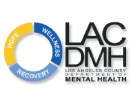Don’t Qualify for Prop 47? Here are other legal services provided by the Public Defender’s Office

OTHER LEGAL ASSISTANCE
EXPUNGEMENTS AND 1203.4 PC
How can I get a past conviction taken off my record?
Generally, only persons under eighteen years of age at the time of their arrest and whose cases were heard in the juvenile court are eligible to have their arrest record “expunged” and sealed. Expungement means that all records of a juvenile court adjudication can be sealed — except to certain members of law enforcement and agencies of the federal government.
For adults, the law does permit the court to dismiss the charge if the person in question has successfully fulfilled the conditions of probation for the entire period of probation or in rare cases where it is in the interests of justice to do so. A request for this dismissal is known as a 1203.4 PC motion. There are some types of offenses which are not subject to this kind of dismissal.
Getting a conviction dismissed relieves a person of some of the penalties and problems associated with a conviction. Some consequences do remain: the conviction may still be used to increase a sentence for any new conviction a person may receive in the future. For example, the conviction could be alleged as a “strike” prior under the Three Strikes Law, or it may be used to turn a misdemeanor charge into a felony. Possession or ownership of firearms remains unlawful. and the conviction must be disclosed in response to any direct question contained in any questionnaire or application for public office, for state or local license, or contracting with the California State Lottery. In most cases, a person will not be relieved of his or her duty to register as a sex offender.
Probation officers may make application to set aside a conviction. The Public Defender will represent people making this motion. For further information, contact the Public Defender Branch Office in the courthouse where the conviction occurred. Click here for a list of Public Defender Offices.
HOW DO I GET A CERTIFICATE OF REHABILITATION?
A Certificate of Rehabilitation generally allows a person convicted of a felony (and very limited misdemeanor sex crimes which require registration) to have some of his or her civil and political rights of citizenship restored. The granting of a Certificate of Rehabilitation also serves as a plea to the Governor for a pardon. In order to qualify for a Certificate of Rehabilitation, a person must establish that he or she has lived an honest and upright life and that at least seven years have passed since the completion of the sentence. If the person has been placed on probation, the seven-year period starts on the date of the grant of probation. If the person has been sentenced to prison and was placed on parole, the seven-year period begins when the person is actually paroled.
The individual requesting the certificate must have resided in California for the past five years. Individuals convicted of some crimes, such as those that carry mandatory life parole terms and certain sex offenses, are not eligible for a Certificate of Rehabilitation.
The Public Defender will prepare the Certificate of Rehabilitation motion and represent the person requesting it in court.
For further information, please contact the Certificate of Rehabilitation Paralegal at the Office of the Los Angeles County Public Defender, 210 West Temple Street, 19th Floor, Los Angeles, CA 90012, (213) 974-3057.
FACTUAL FINDING OF INNOCENCE
How do I get a “finding of factual innocence?”
If you were arrested and no charges were filed against you, or you were charged but not convicted and the case against you was dismissed, or you were acquitted after a trial, you can petition the court for a “finding of factual innocence,” known as an 851.8 PC Motion. The Penal Code states that “In any court hearing to determine the factual innocence of a party, the initial burden of proof shall rest with the petitioner to show that no reasonable cause exists to believe that the arrestee committed the offense for which the arrest was made.” If the court does make such a finding, you can truthfully answer that the arrest never happened. The Public Defender’s Office will help you ask the court for a finding of factual innocence.
For further information, contact the Public Defender Branch Office in the courthouse where the conviction occurred. Click here for a list of Public Defender Offices.







